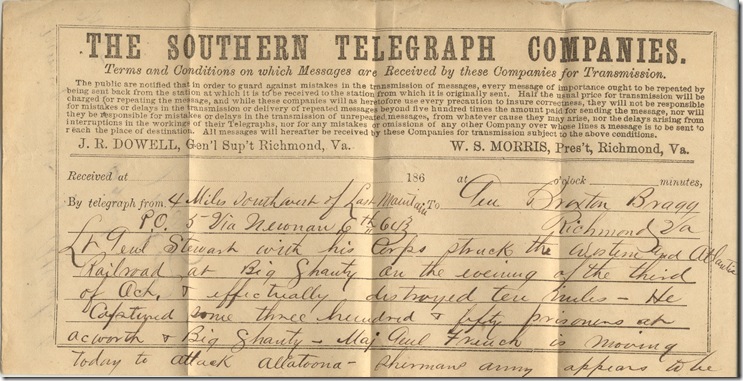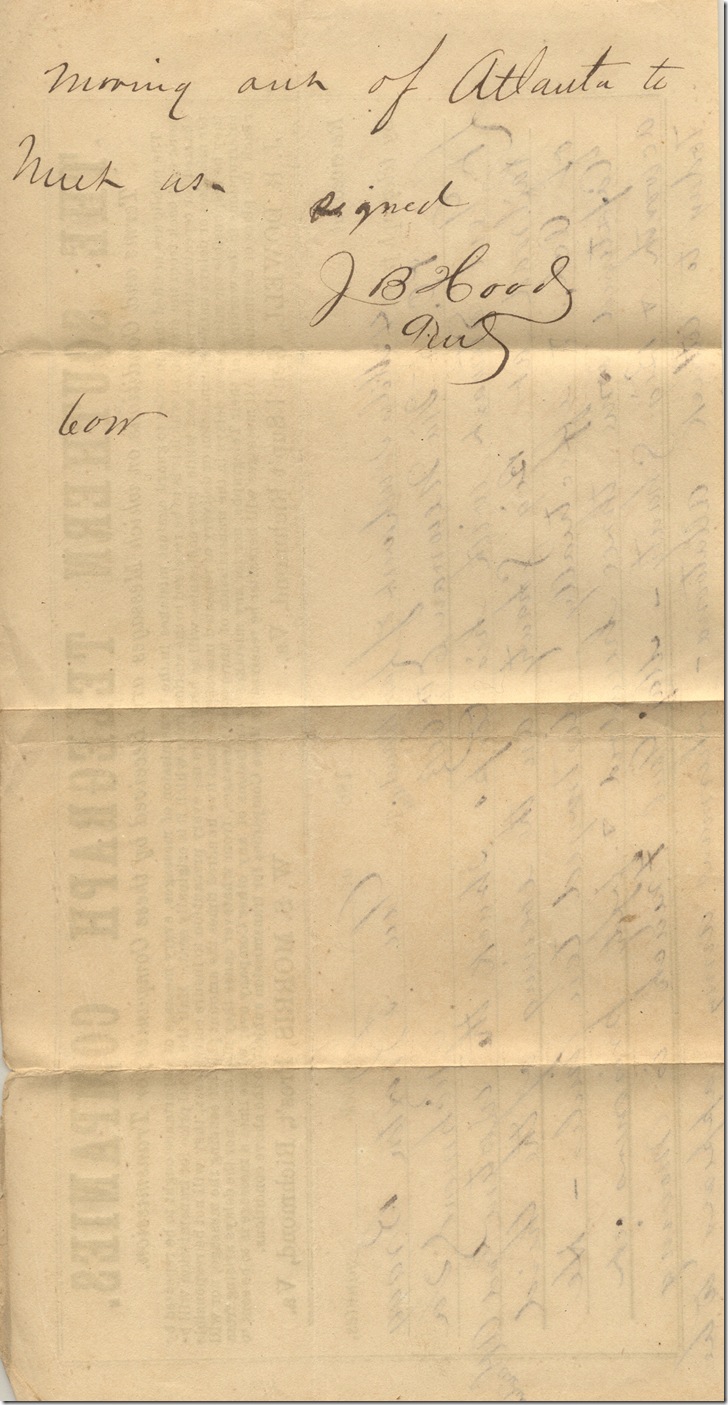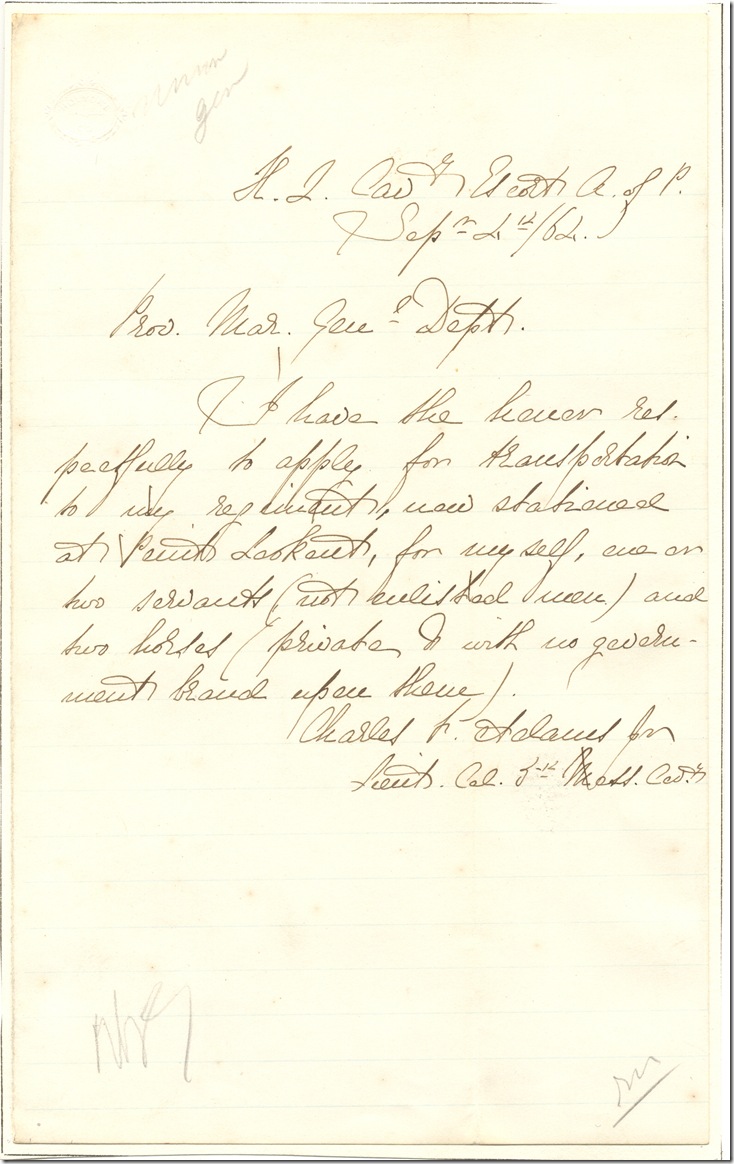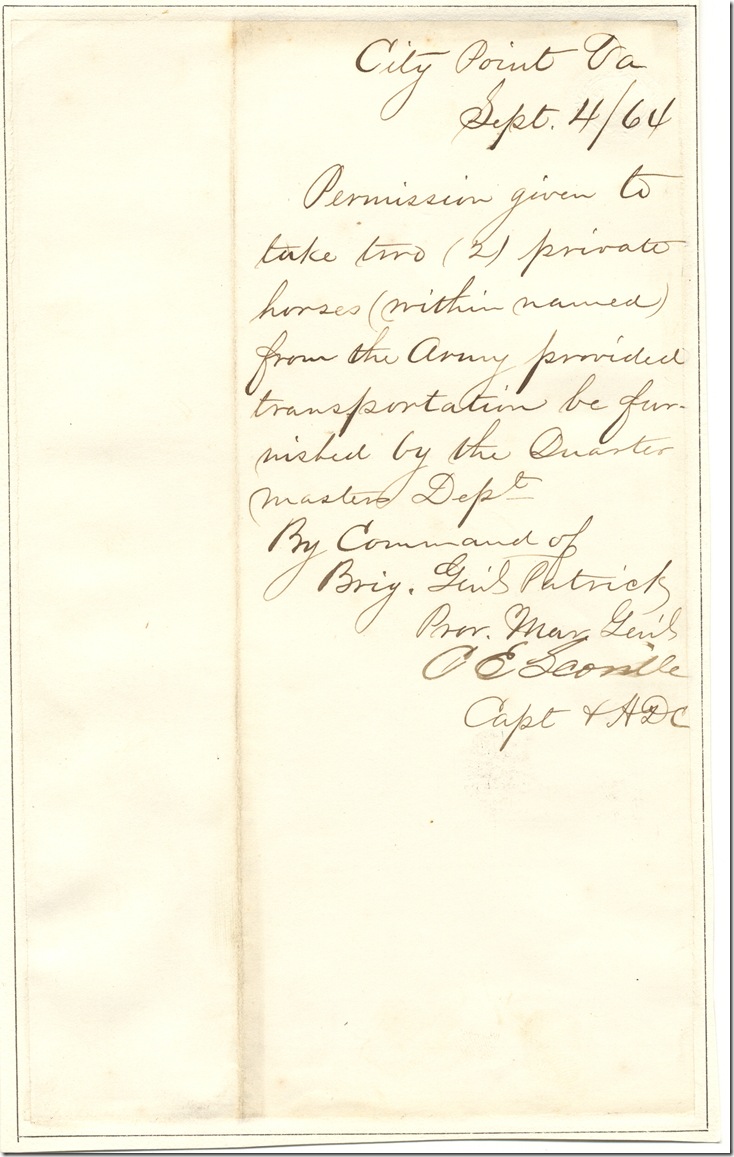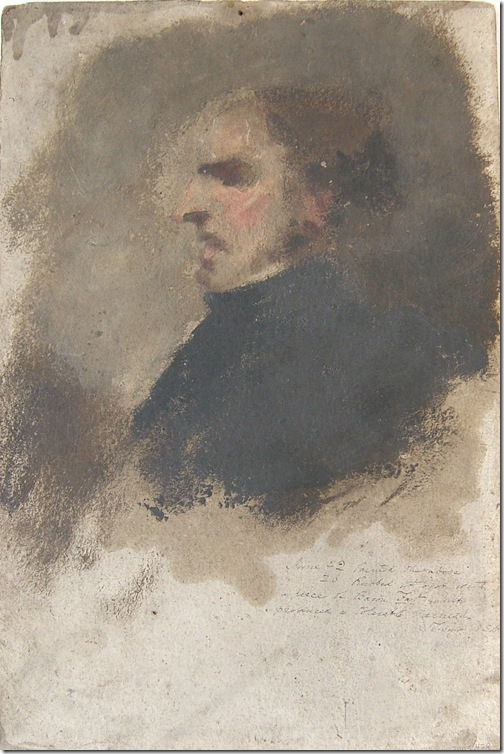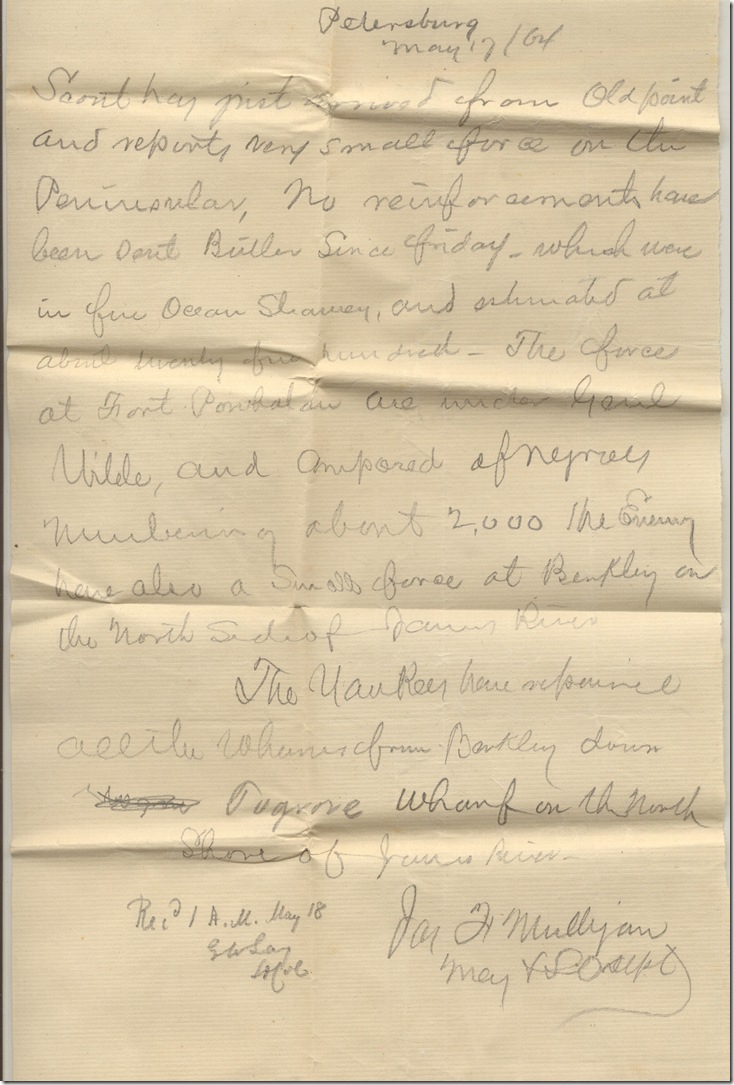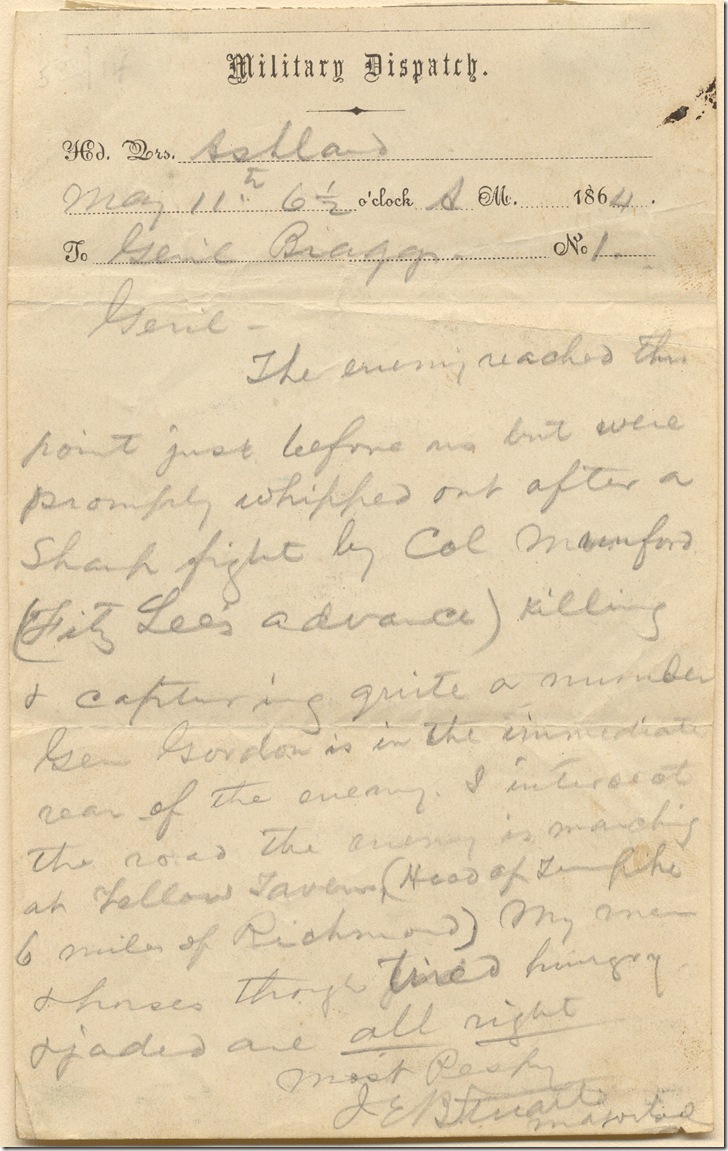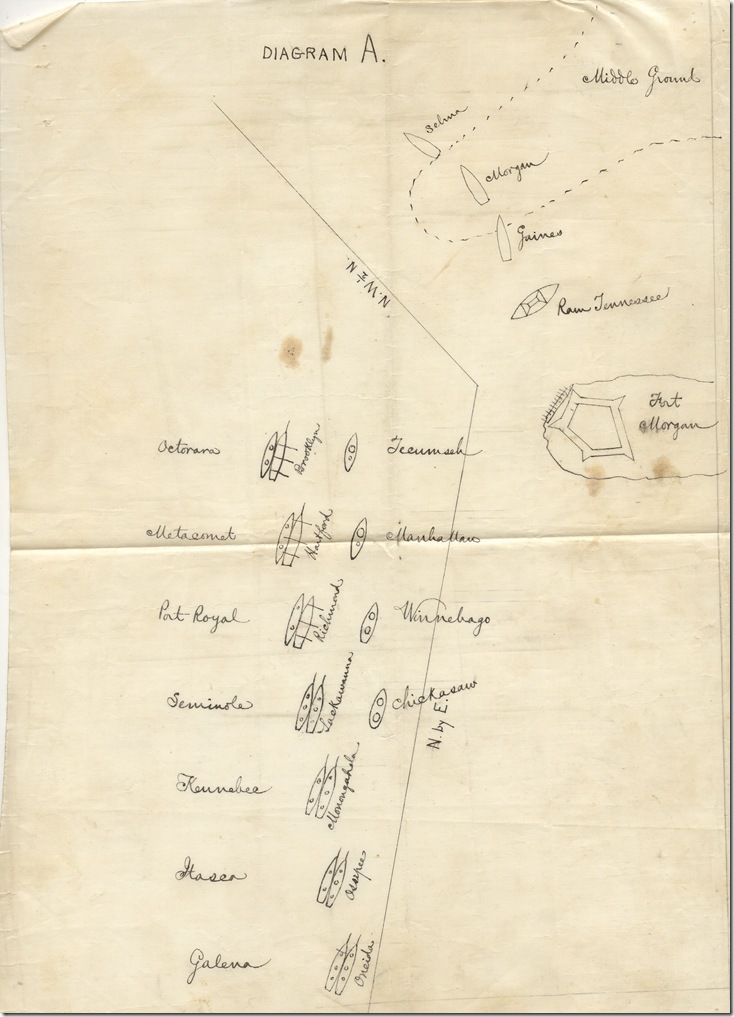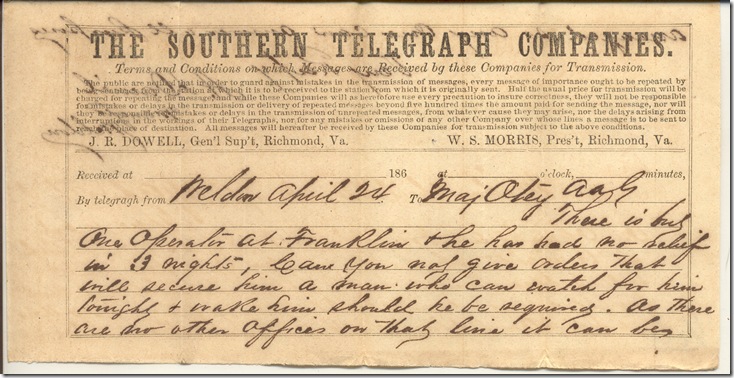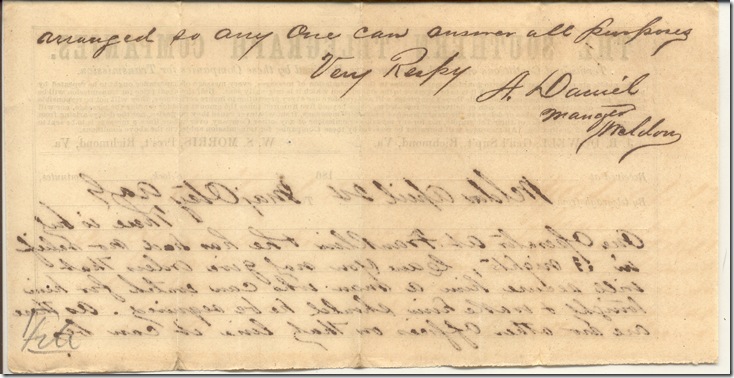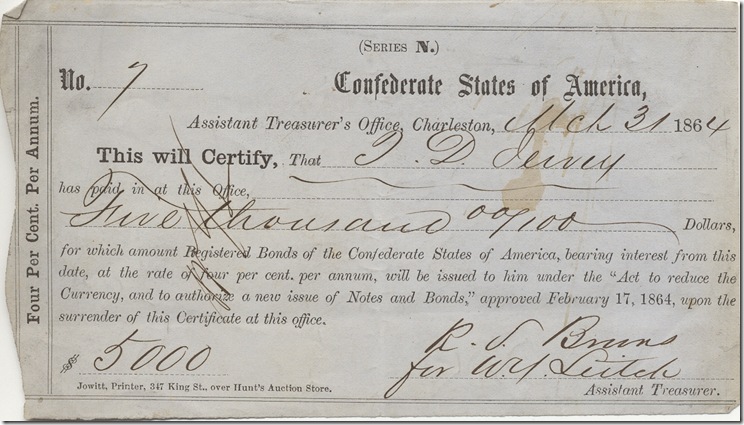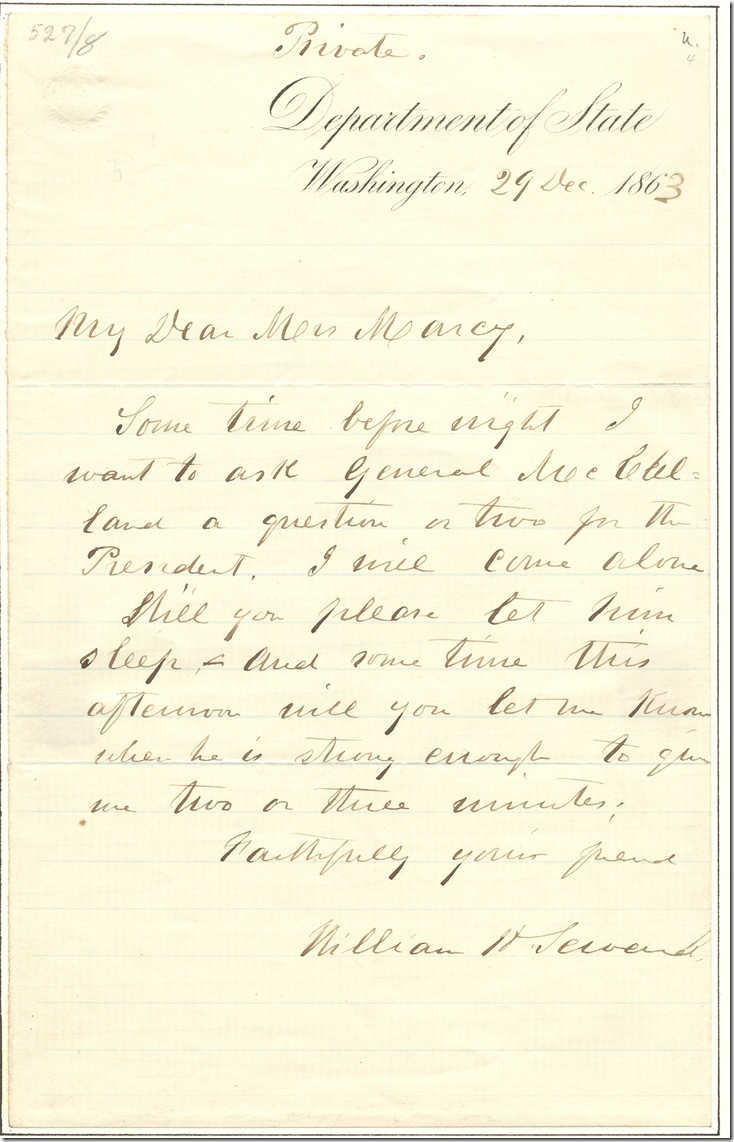William Pitt Fessenden was a Republican senator from Maine who would later serve as Secretary of the Treasury from July 1864 to March 1865. In January 1864 his son Francis was colonel of the 30th Maine Veteran Infantry.
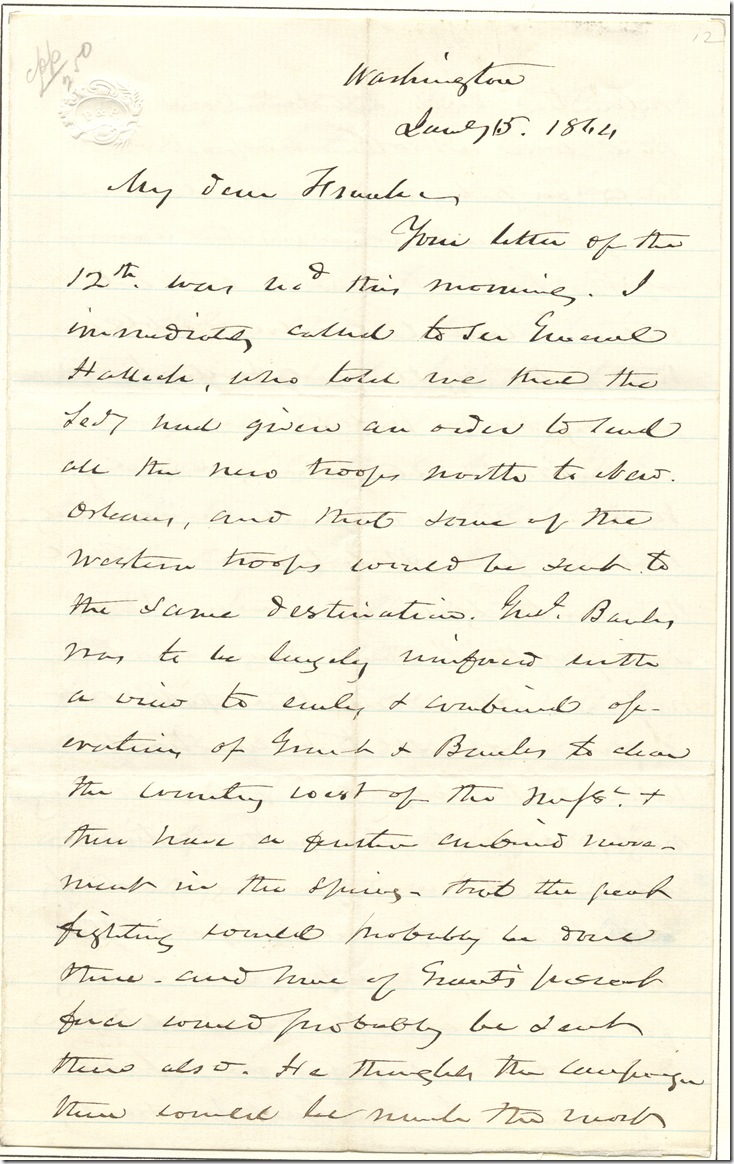
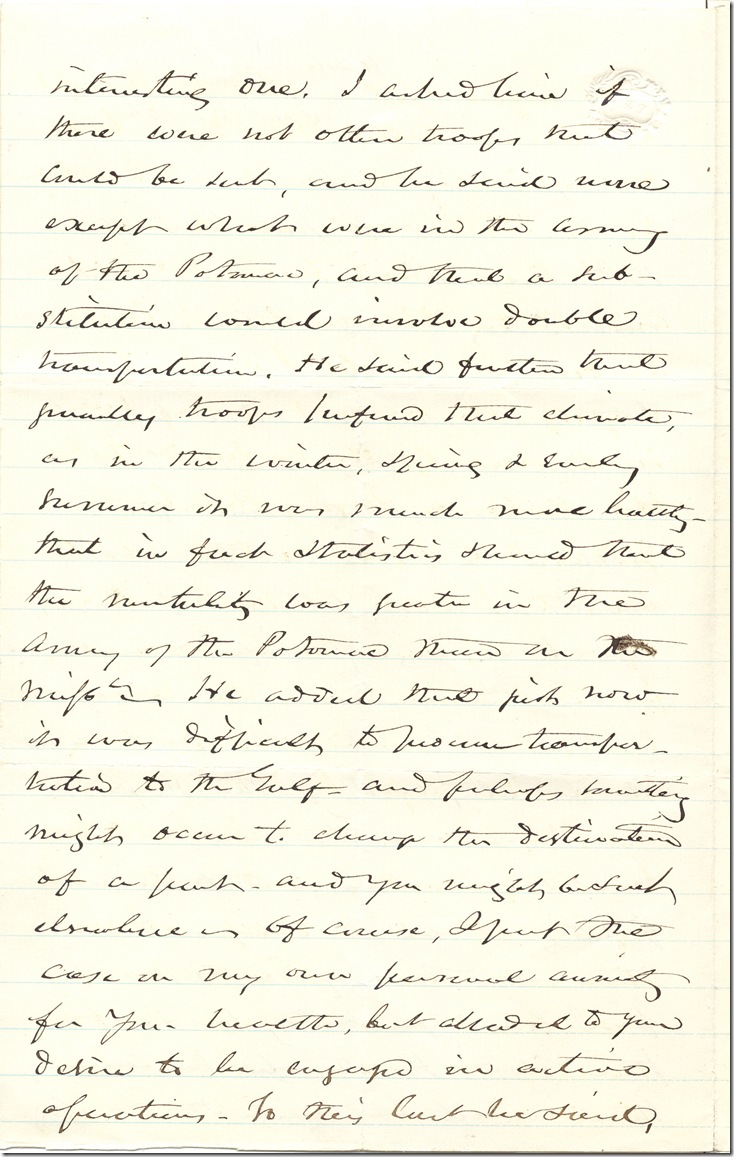
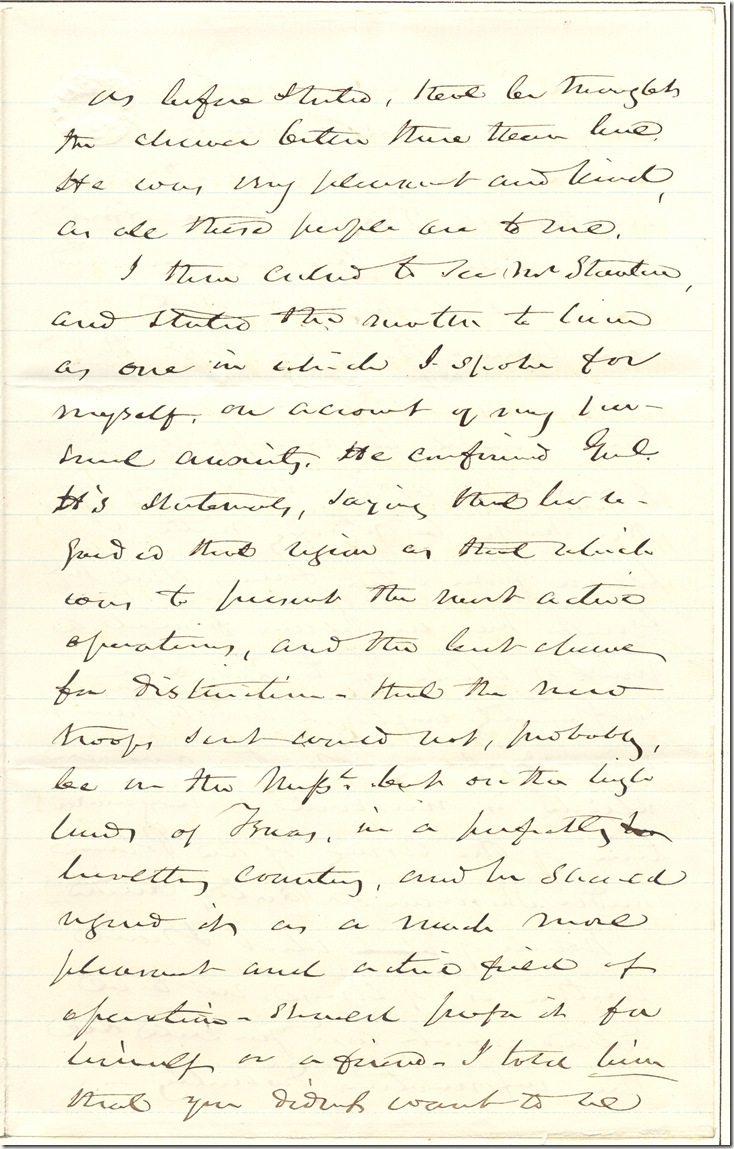
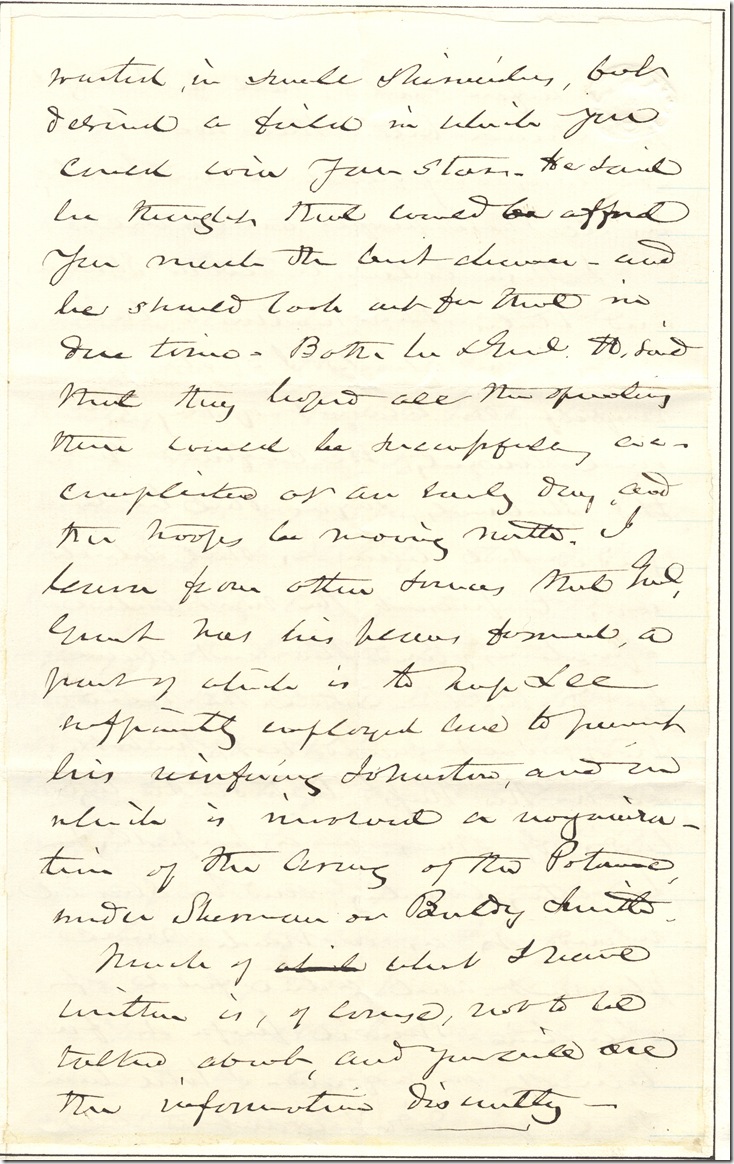
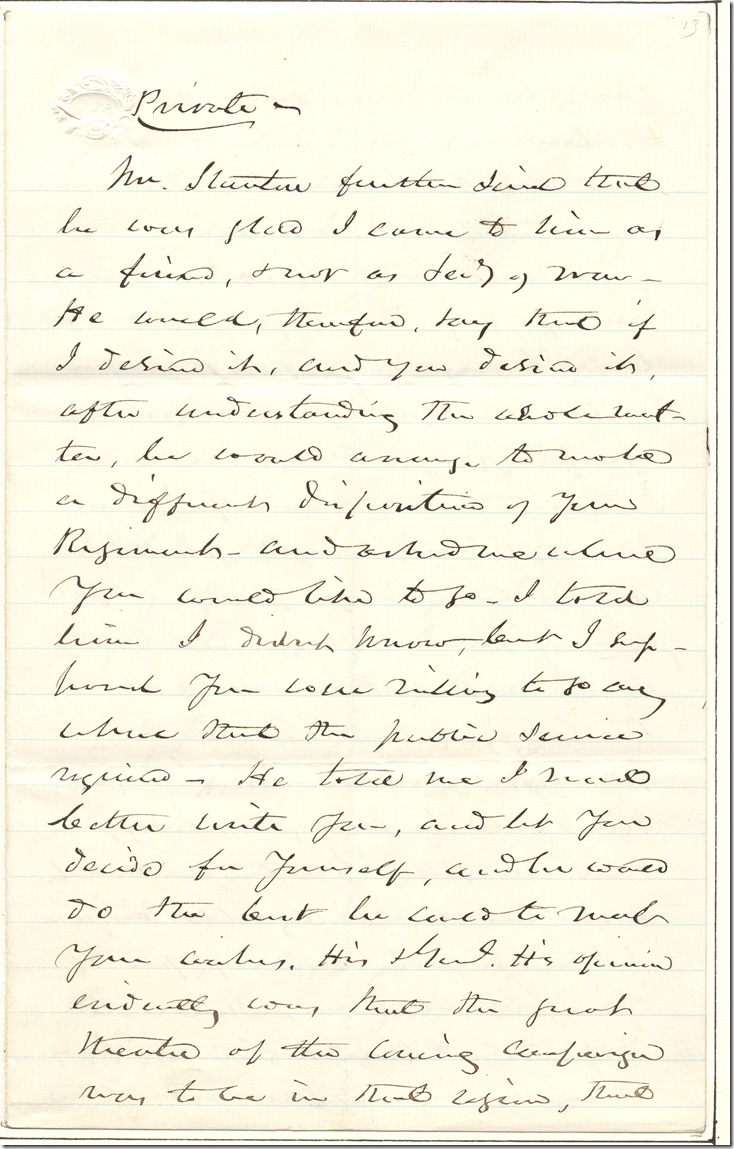
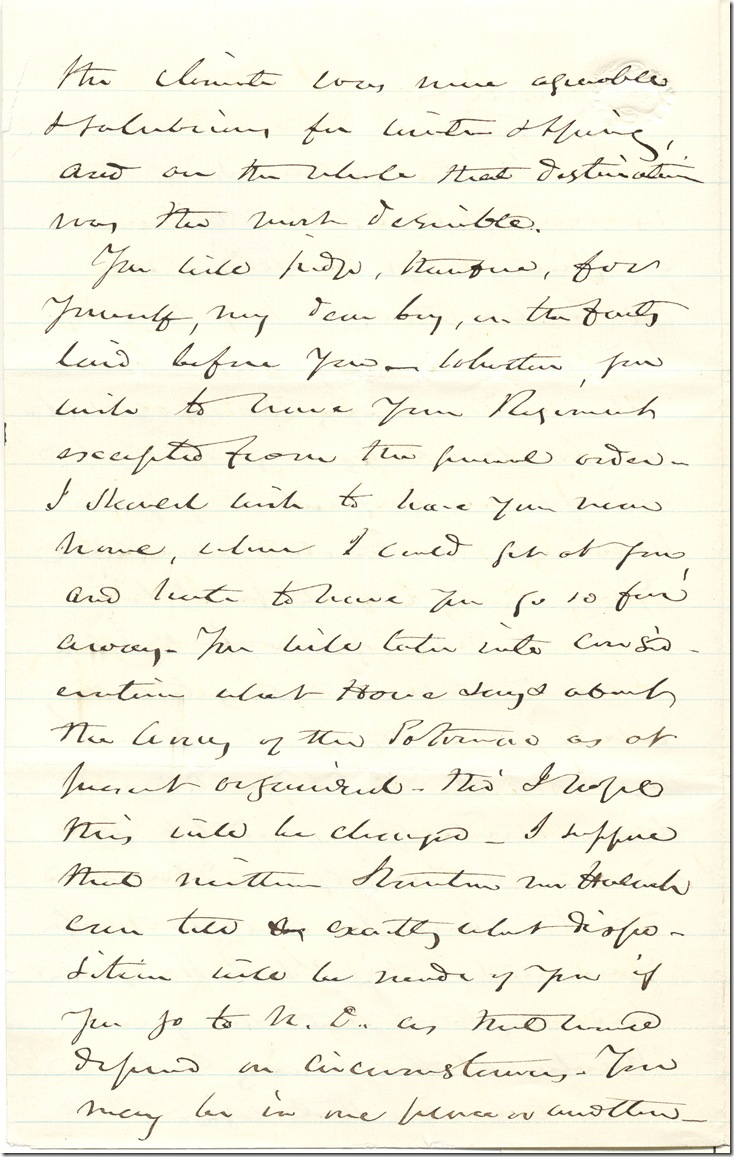
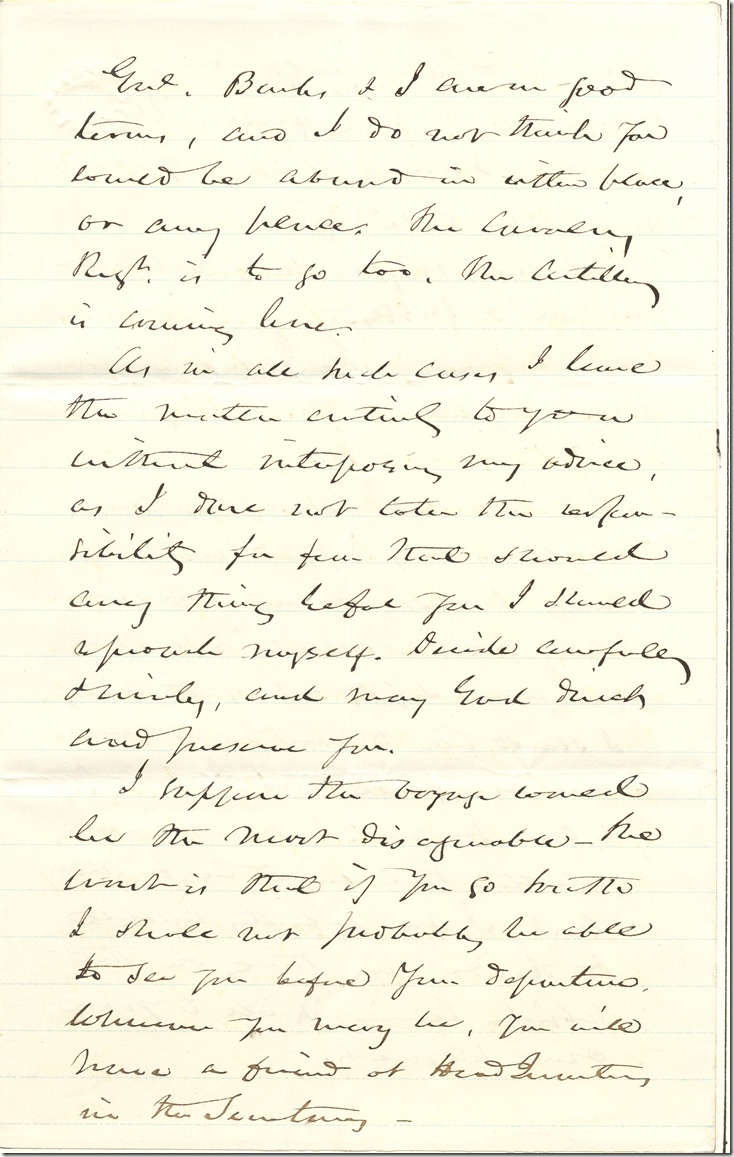
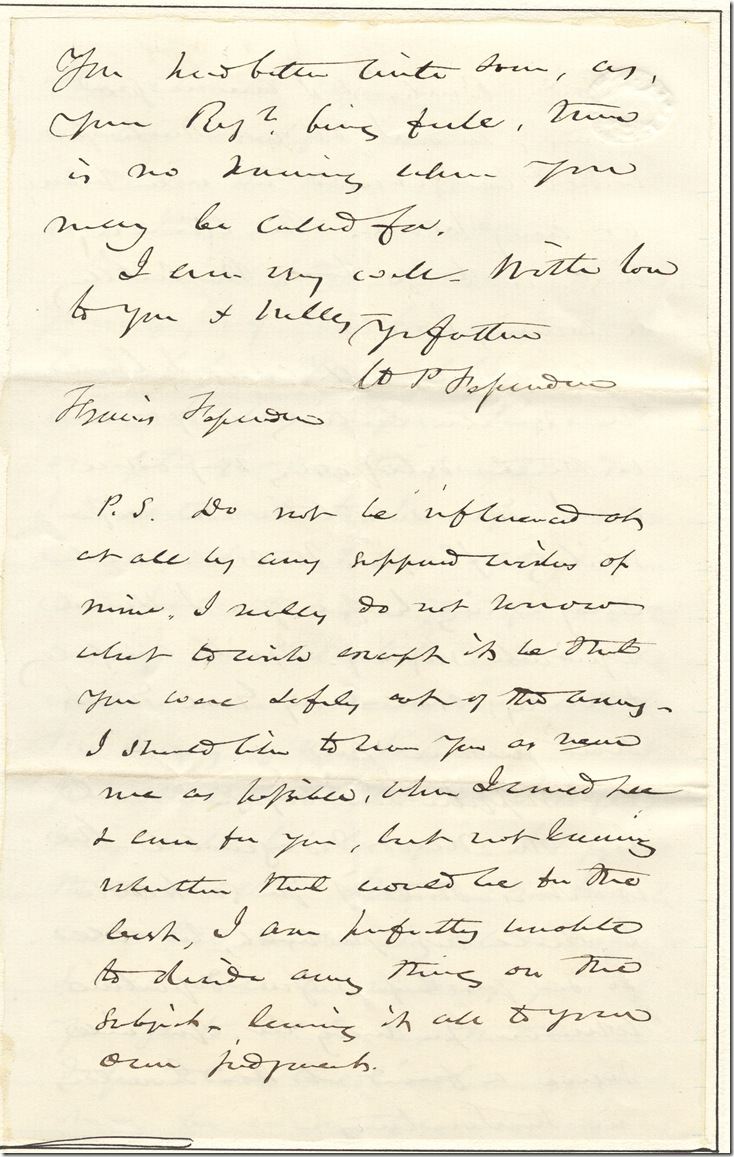
Transcript:
Washington
Jany 15, 1864
My Dear Francis,
Your letter of the 12th was recd this morning. I immediately called to see General Halleck, who told me that the Genl had given an order to send all the new troops south to New Orleans, and that some of the western troops would be sent to the same destination. Genl. Banks was to be largely reinforced with a view to early & combined operations of Grant & Banks to clear the country coast of the troops &c & then have a further combined movement in the spring—that the great fighting would probably be done there—and more of Grant’s present force would probably be sent there also. He thought the campaign there could be much the most interesting one. I asked him if there were not other troops that could be sent, and he said none except which were in the Army of the Potomac, and that a substitution could involve double transportation. He said further that generally troops preferred that climate, as in the winter, spring & early summer it was much more healthy— that in fact statistics showed that the mortality was greater in the Army of the Potomac than on the Miss. He added that just now it was difficult to procure transportation to the Gulf—and perhaps something might occur to change the destination of a part—and you might be sent elsewhere. Of course, I put the case on my own personal anxiety for your health but alluded to your desire to be engaged in active operations—to this last he said, as before stated, that he thought the climate better there than here. He was very pleasant and kind, as all these people are to me.
I then asked to see Mr. Stanton, and stated the motive to him as one in which I spoke for myself, on account of my personal curiosity. He confirmed Genl. H’s statements, saying that he agreed that region as that which was to present the next active operations, and the best chance for distinction—that the new troops sent would not, probably, be on the Miss but on the high lands of Texas. in a perfectly [healthy?] country, and he should regard it as a much more pleasant and active field of operations—should prefer it for himself or a friend. I told him that you didn’t want to be wasted in small skirmishes, but desired a field in which you could win distinction. He said he thought that would be offered you much the best answer—and he should look out for that in due time. Both he & Genl H said that they hoped all the operations there would be successfully completed at an early day and the troops be moving north. I learn from other sources that Genl Grant has his forces forward, a part of which is to keep Lee sufficiently engaged to prevent his reinforcing Johnston, and in which is included a reorganization of the Army of the Potomac under Sherman or Baldy Smith.
Much of what I have written is, of course, not to be talked about, and you will use the information discreetly.
Private—
Mr. Stanton further said that he was glad I came to him as a friend, & not as Secy of War—He would, therefore, say that if I desired it, and you desired it, after understanding the whole matter, he would arrange to make a different dispatch of your Regiments—and asked me where you would like to go. I told him I didn’t know, but I supposed you were willing to go any where that the public service required. He told me I should better write you, and let you decide for yourself, and he would do the best he could to meet your wishes. His & Genl H’s opinion evidently was that the great theatre of the coming campaign was to be in the region, that the climate was more agreeable & salubrious for winter & spring, and on the whole that destination was the most desirable.
You will decide, therefore, for yourself, my dear boy, on the facts laid before you—whether you wish to have your Regiment excepted from the given order—I should wish to have you near home, where I could get at you and hate to have you go so far away. You will take into consideration what H says about the Army of the Potomac as at present organized—this I hope this will be changed—I suppose that neither Stanton nor Halleck can tell me exactly what disposition will be made of you if you go to N.O. as that would depend on circumstances. You may be in one place or another—Genl Banks & I are on good terms and I do not think you will be abused in either place or any place. The Cavalry Regt is to go too. The Artillery is coming here.
As in all such cases I leave the matter entirely to you without interposing my advice, as I do not take the responsibility for fear that should any thing befall you I should despise myself. Decide carefully & nicely, and may God watch and preserve you.
I suppose the bayou would be the most disagreeable— The worst is that if you so decide I shall not probably be able to see you before your departure. Wherever you may be, you will have a friend at Head Quarters in the Secretary.
You had better write soon, as, your Regt being full, there is not knowing when you may be called for.
I am very well—With love to you & Willy
Your father
W P Fessenden
P.S. Do not be influenced at all by any supposed wishes of mine. I really do not know what to wish except it be that you were safely out of the Army—I should like to have you as near me as possible, where I can see & care for you, but not knowing whether that would be for the best, I am perfectly unable to decide any thing on the subject, leaving it all to your own judgment.
Citation: William Pitt Fessenden (1806-1869), autograph letter signed to Francis Fessenden. Washington, D.C., 15 January 1864. AMs 527/8.4
